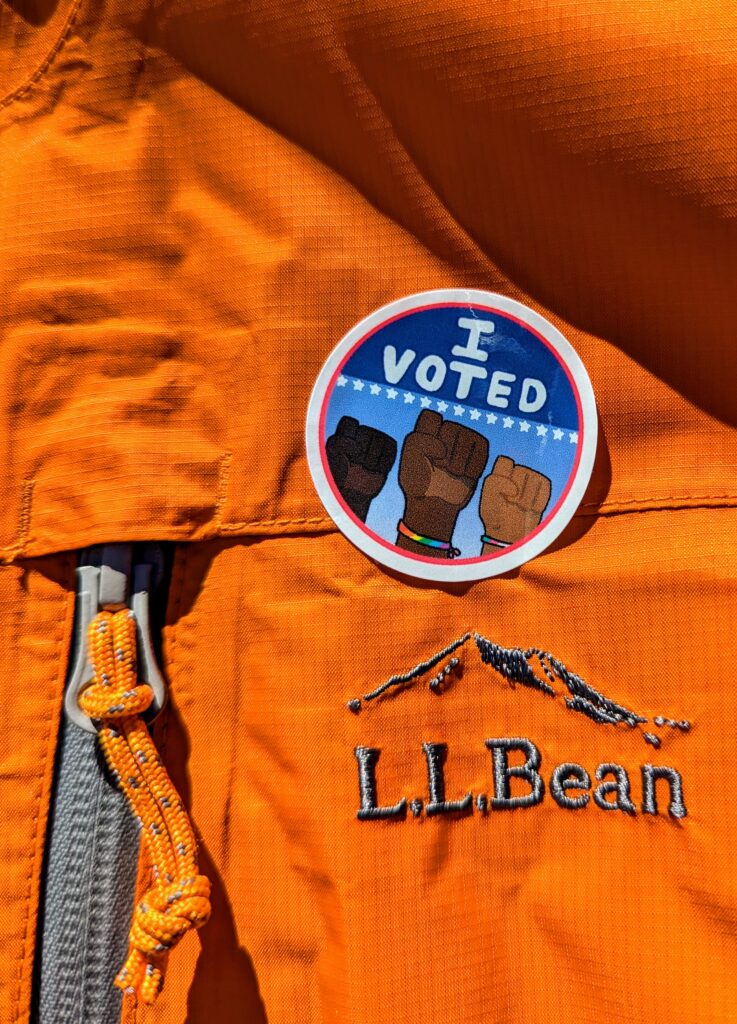“total abortion bans come at the cost of more than 36,000 residents per quarter.”
Source: Are People Fleeing States with Abortion Bans? | NBER (Link to page that links to the pdf of the study.)

Via Emily Peck, via Slate Money.

“total abortion bans come at the cost of more than 36,000 residents per quarter.”
Source: Are People Fleeing States with Abortion Bans? | NBER (Link to page that links to the pdf of the study.)

Via Emily Peck, via Slate Money.
I don’t think of myself as someone who wishes ill for others. I genuinely do not wish for anyone to come to harm. But I’m struggling just a bit with schadenfreude right now.
Take, as an example, the wildfires in California. As I mentioned a couple of weeks ago, these fire events were not just entirely foreseeable; they were actually foreseen forty years ago. And yet, there are tens of thousands of people who apparently made the calculation that the views from a house on a hillside at the urban-chaparral interface were so good it was worth taking the risk—and especially so, given that a large fraction of the costs of fighting those fires, and insuring against financial loss, could be spread to other people. People like me.
I think I’m allowed a bit of, “I hope you are enjoying the entirely foreseeable consequences of your choices.”
As another example, take the snow about to hit New Orleans:
By Tuesday, the winter storm will drop freezing rain, sleet and likely several inches of snow onto south Louisiana, including in New Orleans, Metairie, Slidell, Baton Rouge and Lafayette.
I have to admit that when people in red states face an extreme weather event that’s entirely to be expected, a certain part of me thinks, “Well, you could have voted for politicians and policies that would have greatly ameliorated climate change, but you didn’t. Enjoy the entirely foreseeable consequences of those choices.”

And, as a non-climate example, apparently a lot of black and brown male voters refused to vote for Kamala Harris. I suspect many of them will be surprised and saddened by the utterly predictable deportations of friends, family members, neighbors, coworkers, and employees over the next few years. And I will be very sad about that—sad for the people deported and their friends and family, and also about the dreadful police actions that will be required to make them happen. But I hope I will be excused from feeling no sympathy for the bosses who find themselves having to pay up to get workers who haven’t been deported, and very little sympathy for the people who voted for these policies and find that everything they want to buy costs more.
“Welcome to the entirely foreseeable consequences of your actions as well.”
I lived in Los Angeles briefly in 1986. While I lived there, my dad sent me this book:

It talked about landscaping to minimize fire, flood, and mudslide risk, but my key takeaway was, “Only a moron would live in Southern California,” and I moved away before the end of the year.
It was a government publication, so the PDF is available: https://www.fs.usda.gov/psw/publications/documents/psw_gtr067/psw_gtr067.pdf
Playboy magazine and Helen Gurley Brown. That’s what last week’s New York Times opinion piece, Barstool Conservatism, Revisited (on the weird agglomeration of libertarians, crypto- and tech- bros, and incels who ended up voting with social conservatives) made me think of.
My thoughts draw on a book I read about Hugh Hefner, Playboy, and Helen Gurley Brown. The basic thesis, as I recall it, was that Hefner wanted a society where young men could enjoy an extended youth. The best way to make that work, he thought, was for women to be able to support themselves—so that they’d be willing to sleep with men, rather than feeling that they had to hold out for a man who would marry them.
To that end, Playboy magazine was very active at promoting equal rights for women—so they could earn money, own property, etc. Because only when they were able to support themselves without needing to get married, would they be willing to sleep around. And women willing to sleep around, were what the Playboy demographic wanted.
That social experiment played out pretty much just the way Hefner wanted through most of the 1960s, 1970s, and 1980s. Women could earn enough to afford an apartment, food, clothing, and the other necessities, which meant that they didn’t have to get married just to survive.
However (and this was key, even though I don’t think Hefner really thought about it much) men earned more than women.
The result was perfect for men. They had enough money to buy fancy cars, fancy stereos, fancy watches, expensive liquor—all the sorts of products that advertised in Playboy—with enough left over that they could afford to take women out on nice dates and buy them little gifts. The women earned enough less that, although they could get by, they couldn’t have really nice things, except when men bought them.
Things began to change the 1990s, when women’s incomes grew to the point that they could afford nice things. That produced two changes. First, women that could afford not merely a tiny apartment, but their own house, weren’t so reliant on men to make them comfortable. Second, with so many women taking top jobs, there were fewer top jobs for men. That meant that more and more men found it tough to earn an income that let them improve a woman’s standard of living.
This situation is what has the incels so unhappy. For decades, even after women weren’t legally subservient to men, men generally had enough money that they had something very tangible to offer a woman. Now that’s only true for the top few percent of male wage earners.
Of course, any man with either ambition or good sense could work around this situation. Becoming one of the 1% is hard, but simply having enough ambition to get into, let’s say, the top 50%, means that you have enough of a surplus to be able to raise the standard of living of a woman. And good sense is all it takes to do a bit of an analysis and realize that following the strategies of the pick-up bros isn’t going to lead to what you want nearly as well as coming up with things to offer to women besides cash. (Different things for different women, but: getting fit, wearing nice clothes, learning about the arts or science or history—whatever any particular woman is interested in, paying attention to them when they talk, being supportive of their efforts, are all things that might work.)
But incels as a group don’t seem to want to make even that modicum of an effort. They’d rather blame women.
The other groups I mentioned are broadly similar. Even the rich, successful tech bros are often dysfunctional to the point that they have trouble attracting women. Libertarians are often attracted to the movement specifically because what they yearn for is a world where people have minimal legal protections from the wealthy (and for no good reason, they imagine that they’ll be wealthy enough to take advantage of that). Crypto bros are the same, except they have a specific (rather than vague) notion of where their money is going to come from, even if it’s a fantasy.
So I understand that article. I think that is why all those disparate groups came together, even when their actual interests are pretty disparate.
The big question is, will these groups hang together going forward? Or will the fact that they have nothing much in common except a fantasy of enjoying being on top, lead to infighting and failure?
I’m hoping for failure, but it’s still too soon to say.
I’m only surprised this doesn’t happen way more often. Surely a lot of people go into health research precisely to try to cure illnesses they have. If they come up with something very promising, why not try it on themselves?
A scientist who successfully treated her own breast cancer by injecting the tumour with lab-grown viruses has sparked discussion about the ethics of self-experimentation.
Source: Nature
Because I am not as clever as Cory Doctorow, I just frittered away 15 minutes setting up my domain to be verified as my Blue Sky handle: https://bsky.app/profile/philipbrewer.net
I post almost nothing there—basically, just links back to my blog here—but you can go find me there with the other cool kids who are not as clever as Cory Doctorow.
It seems like every business now has its own app, which usually offers remote ordering, as well as discounts. I do my best not to use any of them, because they demand (and transmit to the business) all sorts of private information from my phone. This seems to me like something my phone ought to fix.

It ought to be pretty easy on the phone to provide a virtual machine which only passes to an app whatever information the phone owner wants to pass on. For example, you could configure a video loop to provide, if the app wants to turn on the camera, or an audio file to provide if the app wants to turn on the microphone.
You could get quite fancy about things like location, if you wanted to. For example, a fast food app could be provided a random location, but one that was a configurable distance from the fast food restaurant. (I’m imagining that the fast food apps either already do, or soon will, adjust the price based on where you are. For example, if you’re already in the parking lot, they can raise the price, assuming that you’ve already decided to buy from them. They can cut the price if a competitor is closer to your location, to reduce the chance that you’ll stop there instead. The phone could pick a location to maximize your discount, to the extent that people had been able to figure out and share the algorithm.)
These sorts of tweaks would be easy to implement, but there’s no functionality in phones to provide them. It’s as if the manufacturers of the phones want to rat you out to every business with a phone app.
I resist by strictly limiting which apps I install on my phone. But I’d be a lot happier with a virtual machine which would put me in control of what data about me those installed apps could get.
I’m a bit surprised that the billionaires are so blasé about a fascist taking over the government. Yeah, yeah—maybe their taxes will go down. But maybe not—Trump only cares about his taxes, not theirs.
More to the point, don’t they know what’s been happening to the billionaires in China and Russia these past few years?
I do not understand why anyone would want their drivers license on their phone (iPhone Driver’s License Support Expands to Iowa). It purely facilitates a cop taking your phone away and doing who-knows-what to it.
Maybe on a burner phone….
I keep seeing posts urging me to check my voter registration while there’s still time to register if my registration has been improperly deleted, and thinking, “Oh, right. I haven’t done that! I should check!” And then I remember that I voted last week, so I’m all set. Phew!
